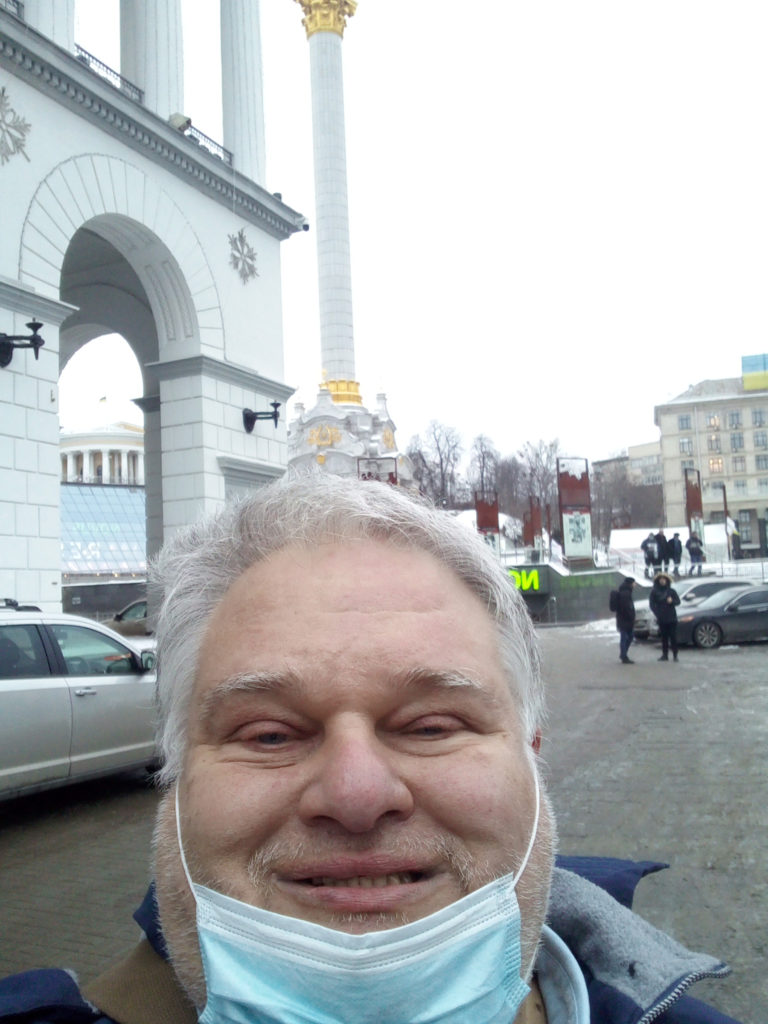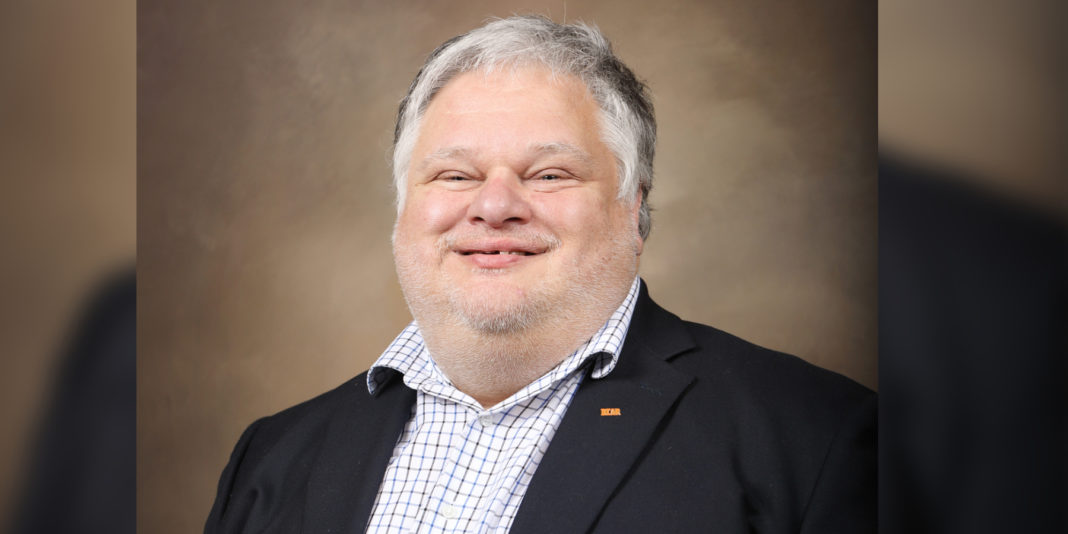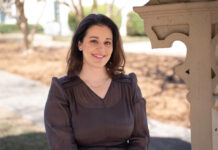A Mercer University professor studying in Ukraine as a Fulbright scholar has evacuated the country at the request of the U.S. Department of State as Russian troops gather on the border.
Dr. Chris Grant, professor and chair of political science in the College of Liberal Arts and Sciences, left Ukraine on Jan. 27, just weeks after arriving in the country as part of the Fulbright U.S. Scholar Program. He and his daughter — 12-year-old Olivia Edwards, who was traveling with him — are now in Warsaw, Poland, until Feb. 2 when they will return to Georgia.

They had been staying in the capital of Ukraine, Kyiv, which is about 100 miles south of the border with Belarus, where an estimated 100,000 Russian troops are assembled, prompting fears of a Russian invasion.
Ukrainians have experienced Russian aggression for eight years as part of an ongoing conflict in the Eastern part of the country. In addition, Russia annexed Crimea away from Ukraine in 2014, “so tensions with Russia are a part of Ukrainian life,” Dr. Grant wrote in an email to The Den.
However, the evacuation of U.S.-sponsored individuals has made Ukrainians more concerned.
“There is a deeper sense of urgency in the last few days, (leading to) spontaneous demonstrations — singing patriotic songs in metro stations, flying the Ukrainian flag more and more,” wrote Dr. Grant, who also was in Ukraine in 2019, 2010 and 2006. “So, I do think there is a heightened level of concern that has not been present in the past.”
In recent days, the U.S. and NATO, the Western military alliance, have rejected Russia’s main demands to resolve the crisis, and the world is waiting to see how Russian President Vladimir Putin will respond.
As part of his Fulbright award, Dr. Grant taught at Kyiv Mohyla Academy and was researching the emergence of civil society in Ukraine as a former Soviet republic.
“I am conducting a five-state (Armenia, Azerbaijan, Georgia, Moldova and Ukraine) study of how civil society emerges in states that do not have physical sovereignty over their territory,” he explained. “At core are issues of national identity, the role of the NGO (nongovernmental organization) in fostering tolerance, and how can we all learn to find tolerant society from these experiences.”
He has conducted over 100 interviews as part of the project and was to complete his research in Ukraine. He finished his first interview the day before he flew out.
Dr. Grant’s work has given him a strong sense of Ukrainian identity, something that transcends language, ethnicity and religion.
“People see themselves as Ukrainian and overwhelmingly do not want to be under Russian dominance,” he wrote.
A Russian invasion would be a devastating blow for freedom of the Ukrainian people and especially damaging for the exercise of civil liberties, Dr. Grant wrote.
“Russia operates as a quasi-authoritarian state. It imprisons individuals for exercising free speech, poisons opposition leaders and oppresses minority groups,” he explained. “Ukraine has established a level of civil society that is surprisingly strong — all that goes away (if Russia invades). Ukrainians go back to living in oppression and fear. …
“Russians have suppressed Ukrainians repeatedly over history. This has made Ukrainians resilient, but it has taken a horrible toll on the psyche of the people.”
A Russian invasion also would have worldwide impact.
“I think it would radically reshape the balance of power in the world. It would be a clear signal that Russia (and China) can exercise power and that there will not be a dramatic response,” Dr. Grant wrote. “We should all remember that the Budapest accords signed in 1994 assured that Russia and the U.S. (and other signatories) would protect Ukrainian national sovereignty if the Ukrainians gave up their nuclear weapons. Ukraine gave up its weapons, and now all agreements and faith of nations are in the balance.
“Can thugs and dictators do as they please? Or are there consequences? Will Western powers support agreements they have made in the past? This is different from Afghanistan or Iraq because we have made promises here. Our credibility is at stake.”
When Dr. Grant returns to Macon, he will reconsider his options for the Fulbright grant. He’s unsure what will happen but wrote that he is fortunate to be an American and grateful to be a citizen of a country that values protecting the lives of its citizens.
“I come from a large, rich and powerful country, and that is a true benefit in this world,” he wrote. “I had said from the beginning of this process I would follow the embassy directives; our diplomats tend to be very cautious, and I trust them. They said go, and I went.
“May my Ukrainian counterparts enjoy such status in the future.”









